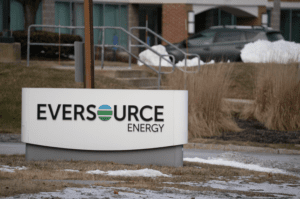
HUDSON – Eversource noted another legal win in its effort to build a transmission line from Sudbury to Hudson last month when the state Energy Facilities Siting Board denied a petition to delay construction that had been filed by key opponents of the project.
The Energy Facilities Siting Board is an independent board that reviews proposed large energy facilities, according to its website.
The 115,000-volt underground power line, set to run for nearly nine miles between Hudson and Sudbury, has been the subject of controversy since 2017, when Eversource filed petitions with the Siting Board seeking permission to begin construction.
Approximately 7.6 miles of the route, which was approved by the Siting Board in 2019, would run along an MBTA right-of-way in Sudbury, Stow, Marlborough and Hudson. This would connect an Eversource substation in Sudbury to the Hudson Light and Power Department’s substation in town.
Protect Sudbury filed new petition with Siting Board
Protect Sudbury, which is a resident-led group opposing this project, submitted a letter in July of last year, asserting that the Siting Board shouldn’t authorize construction of the transmission line under a condition of its final decision.
Protect Sudbury, according to Presiding Officer Joan Foster Evans’ Dec. 3 ruling, contended that, under that condition, Eversource couldn’t begin construction because of a question over whether the Massachusetts Bay Transportation Authority (MBTA) could legally enter into an option agreement.
According to filings, that 2017 option agreement gave Eversource the right and option to acquire an easement along the MBTA’s right-of-way.
Protect Sudbury believes the MBTA doesn’t have the legal authority to restrict the right-of-way for this transmission line because the railroad along it is not “legally abandoned,” the presiding officer wrote.
“[The Surface Transportation Board]…has exclusive and primary jurisdiction over the rail road line along the’ MBTA right-of-way,” Foster Evans wrote of Protect Sudbury’s position.
Protect Sudbury argued that the MBTA couldn’t enter into the agreement until the Surface Transportation Board determined that the line had been abandoned.
The Surface Transportation Board is a federal agency that regulates surface transportation, such as freight rail. Protect Sudbury has filed with the board seeking that determination.
Eversorce argued against Protect Sudbury petition
Back before the Energy Facilities Siting Board, Eversource argued that the condition in question “…was designed to address a specific factual and legal issue that arose during the proceeding, not some future, unknown challenge that has no factual predicate in the record.”
The company said this condition applied to a challenge that the town of Sudbury had filed with the Supreme Judicial Court earlier in this ongoing process.
Eversource also argued that Protect Sudbury’s letter should “be viewed as yet another staged attempt by [Protect Sudbury] to block a necessary infrastructure project that was approved by the Siting Board in the Final Decision in 2019, which Final Decision was squarely upheld … by the SJC.”
Officer rules in favor of Eversorce
Foster Evans noted that the case before the Supreme Judicial Court had completed its briefing and oral arguments when the Siting Board issued its final decision in Dec. 2019. The court had yet to issue its final decision, though.
The Siting Board had noted those ongoing proceedings, saying that the court would ultimately determine the MTBA’s legal right to grant the easement through the option agreement with Eversource.
“The Siting Board further noted that if the SJC were to rule in favor of the Town, specific legislation would be required to permit construction of the Project along the MBTA [right-of-way],” Foster Evans wrote.
That is why the board included the condition.
The court has since ruled in favor of the MBTA.
“To find that Condition C applies to a federal administrative proceeding that was not in existence when the Final Decision was issued would defy the sequence of historical events, as well as the plain language of the Final Decision,” the officer said.
Both the officer and Eversource note that this latest petition from Protect Sudbury was filed nearly 450 days after the Siting Board’s original decision was issued.
Ultimately, Foster Evans ruled in Eversource’s favor.
“Condition C no longer prevents the Company from commencing construction on the New Line,” Foster Evans wrote. “However, there are other conditions in the Final Decision that must be satisfied before Eversource can commence construction of the New Line.”
Foster Evans noted that one of those conditions is for Eversource to comply with federal, state and local laws, regulations and ordinances from which it hasn’t received an exemption.
Additionally, Eversource must notify the Siting Board if it makes changes to its plan that constitute more than a minor variation.
While this issue may have been decided at the Siting Board, that separate petition is still pending before the federal Surface Transportation Board.
No decision had been made on that petition as of Jan. 17.
Additional reporting by Isha Marathe












